As Donald J. Trump flew to the Holy Land on October 12 to declare peace, his Vice-President took to the airwaves to address the rumbling civil conflict on the home front. J.D. Vance did not rule out invoking the 1807 Insurrection Act in order to quell the violent protests against Immigration and Customs Enforcement (ICE) officials in several American cities. “The problem is the fact that the entire media in this country, cheered on by a few far-left lunatics, have made it OK to tee off on American law enforcement,” he told NBC News. “We cannot accept that in the United States of America.”
This is now Vance’s familiar role. He’s not the bad cop to Trump’s good, exactly, more the administration’s favorite pitbull. Trump plays the grand old statesman, smiling benignly on a world that has learned to love him. Vance is his terrier, who jumps the fence to growl at the opposition on their turf. “Here’s, George, why fewer and fewer people watch your program and why you’re losing credibility,” he told ABC’s George Stephanopoulos in another interview on the same day. “Let’s talk about the real issues… I think the American people would benefit much more from that than from you going down some weird left-wing rabbit hole.”
Trump fans lap up these controlled yet vicious performances from Vance. His ability to sound calm as he OWNS, DESTROYS, NUKES – choose your favorite viral-clip descriptor – the FAKE NEWS elevates him in the public eye. And his powerful media profile makes him stand out as the obvious president-in-waiting – more so, arguably, than any US politician in recent history.
“There is very little to be said about the vice-president,” observed Woodrow Wilson 140 years ago. “His importance consists in the fact that he may cease to be vice-president.” Yet Vance’s prominence is such that, as things stand, he defies hoary quips about the dispensability of a “veep.” Still only 41 years old, he now appears the natural successor to a 79-year-old, second-term Commander-in-Chief who, for all his strengths, does have a tendency to ramble.
If Vance avoids a spectacular implosion, if he doesn’t fall out with Trump, it’s hard to see anybody successfully challenging him for the Republican nomination. And if the Trump presidency doesn’t end in disaster, it’s difficult to imagine Vance not going on to win the White House, given the disarray of the Democratic party.
The next presidential election is a long way away, of course, and those ifs are, as Trump would say, yuge. The President may not be entirely joking as he toys with the idea of overriding the 22nd Amendment and running for a third term. He enjoys handing out “Four More Years” caps to White House visitors and boasts to other world leaders that “everyone wants me to run.” Someone who knows the President well even tells me that he is “very focused on Trump 2028 – [he] hates even the mention of his successor.”
But in August, asked publicly if Vance was his “heir apparent,” Trump replied: “Most likely, in all fairness. He’s the Vice President… it’s too early to talk about it but certainly he’s doing a great job and he would be, er, probably be favorite at this point.” That’s a highly qualified endorsement. There are persistent whispers from the West Wing that even though Trump’s eldest son, Don Jr., is an ardent Vance backer, his father has never been quite so keen. “There is zero chemistry between J.D. and Trump,” says one source. “Folks that know Trump talk about it all the time: J.D. is just not Trump’s type of guy.”
People who work for Vance scoff at such talk. “Their relationship is extremely strong on a personal level,” insists one. “The President likes him. He likes the President. D.J.T. appreciates talent. He recognizes that Vance is a really good communicator.” Vance has learned a lot from Trump, add his admirers – not least the art of being funny online. Earlier this month when Elizabeth Warren, or “Pocahontas” as Trump calls her, announced on social media her joy at the release of the Israeli hostages, Vance replied: “The President told me he did this on Indigenous Peoples Day in honor of you.”
Vance’s wit helps distinguish him from Mike Pence, Trump’s last vice president, who spent four years being dog-loyal to the Donald, at least in public, only to fall foul of him in the controversial wake of the 2020 presidential election. Compared to multimedia-savvy Vance, Pence is a political dinosaur, a plonking figure from the Grand Old Party which Trumpism left behind long ago. Yet Vance’s supporters also recognize that Pence’s failure provides a lesson in how to stay ahead in Trumpland. Never cross the boss. Never let your agenda depart from his.
The people most likely to run a Vance 2028 campaign understand these rules. That’s why they won’t talk about a Vance presidential bid, at least not on the record, until the 2026 midterm elections are out of the way. “What’s clear is that Vance’s ambition is best served by facilitating the success of the administration,” says one of his more forthcoming advisors. “If the President is successful, it’s very likely that J.D. will become president. If the President is not successful, he will not be elected president. Their interests are aligned.”
Vance’s backers, who include some major party donors, are less reluctant when it comes to dismissing other 2028 Republican hopefuls. Ted Cruz, the Texas Senator and failed 2016 candidate, has been widely mocked for daring to put his name about. Glenn Youngkin, the Virginia Governor, is considered far too conventional a politician for the age of Trump. Spencer Cox, the bald-headed Utah Governor, may be applauded in more liberal-minded journals as a good man who could “heal” a divided country – but that sort of praise is toxic to many Republican voters.
The most realistic post-Trump alternative to Vance is Marco Rubio, 13 years older and currently Trump’s “Secretary of Everything.” Rubio leads the State Department as well as serving as National Security Advisor, acting administrator of the US Agency for International Development and acting archivist for the National Archives and Records Administration. Between them, Rubio and Vance do much of the administration’s high-level gruntwork, the complicated policy stuff that Trump prefers to avoid.
Both men were harsh Trump critics in 2016 who now assiduously display their fealty to him at every turn, even as they build their own power bases inside his administration. Yet their rivalry is softened by the fact that they work closely together. “When the time comes they’ll have an honest conversation,” says one source. “My sense is that if J.D. faceplanted and Rubio thought he [Vance] didn’t have a path, then he’d run.” Others suggest that if Trump’s domestic agenda thrives, he will endorse Vance, whereas if he enjoys more success on the international stage, he’ll elevate Rubio. In his speech to Israel’s Knesset after his peace deal was signed earlier this month, Trump predicted that the man he once dissed as “lil’ Marco” will “go down – I mean this – as the greatest secretary of state in the history of the United States.”
Yet Trump’s America First movement is by definition not internationalist. Rubio, for all his zealous disavowals of his earlier never-Trumpism, remains more of a neoconservative and globalist figure in the eyes of the most influential MAGA voices. Vance, by contrast, is somebody who became famous after Trump’s 2016 victory and has a more natural affinity with the nationalist and post-liberal consensus that increasingly dominates conservatism on both sides of the Atlantic. For now, then, Rubio is usually talked about as Vance’s most likely running mate. The bigger threat to Vance’s ascendancy might come from the wilder fringes of Trumpism, which will start to assert themselves as it becomes clear that King Donald is on his way out. Vance has been careful in the past to applaud Marjorie Taylor Greene, the Georgia Representative, but she represents a part of the Trumpian coalition that is breaking away from the Trump-Vance agenda. MTG, as she is known, is increasingly outspoken in her criticism of Trump’s foreign policy, the impact of his tariff agenda on lower-income Americans and Team Trump’s subservience to the tech oligarchs and “crypto bro” donors.
Vance’s political career was first boosted by the support of Peter Thiel, the co-founder of PayPal and Palantir, the data intelligence company, which is the subject of many dark conspiracy theories. Nick Fuentes, the loudest voice of the controversy-mad Gen-Z right, regularly attacks Vance as a shill for the Mossad-run “deep state” of Big Tech. The hard-right racialists are also preoccupied with the fact that Vance has an Indian wife, Usha, and three mixed-race kids.
For more “normie” Trump supporters, Vance remains a darling figure. He’s the man who overcame a barrage of negative publicity following his nomination in last year’s election. The Democrats castigated him for being “weird,” a suspiciously pious Catholic who insulted female cat-owners. Yet it turned out that Vance, who wrote Hillbilly Elegy about his difficult upbringing, had far more regular-guy appeal than Kamala Harris’s nominee, the erratic Minnesota Governor Tim Walz. In the vice-presidential debate, Vance won over independent voters by combining good manners and a firm grasp of detail when it came to complicated subjects such as immigration and healthcare. “J.D. has got this tremendous capacity to speak to normal people,” says one advisor. “That’s partly because he’s just a very normal person, like fundamentally. He comes from a very American tradition of intellectual pragmatism… for him it’s about what works and what doesn’t work.”
A lot of senior Republicans wanted Trump to pick Rubio as his running mate. But Vance had the support of Don Jr., the TV star Tucker Carlson and, perhaps most importantly, the late Charlie Kirk, the leader of Turning Point, the most powerful conservative youth organisation in the country. After Kirk was assassinated in Utah last month, Vance escorted his friend’s body home aboard Air Force Two. At Kirk’s memorial in a football stadium in Arizona, Vance seized on the evangelical passion of the moment. “Charlie would tell me to put on the full armor of God and get back to work,” he said. “For Charlie, we will remember that it’s better to stand on our feet defending the United States of America and defending the truth than it is to die on our knees.”
Addressing the next generation of Trump revolutionaries, with tens of millions watching worldwide, he sounded more than ever like the next president of the United States.










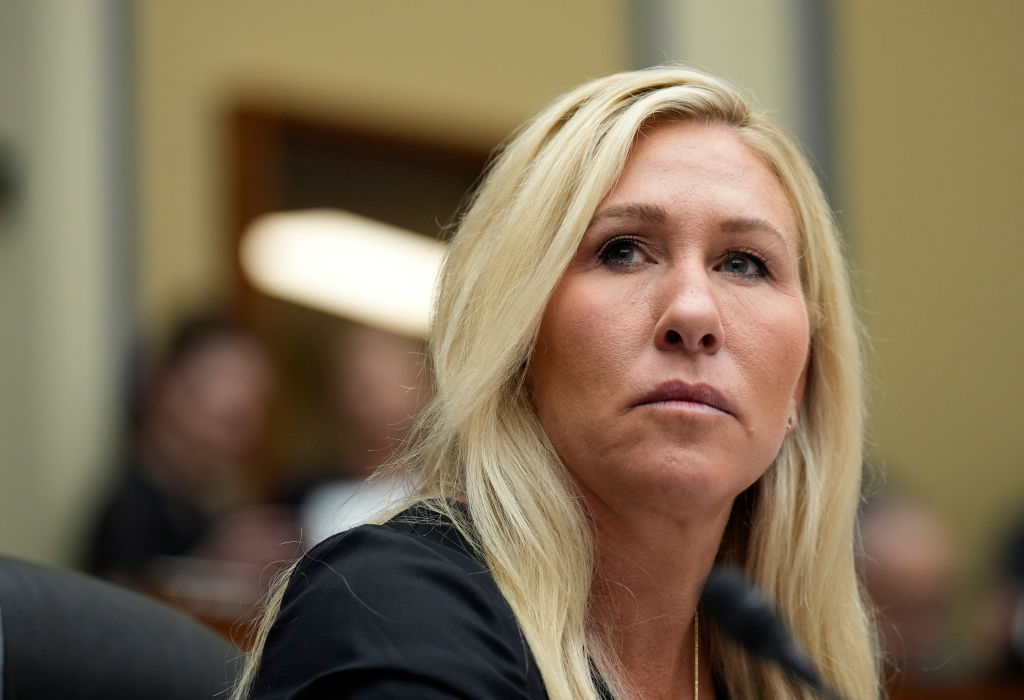
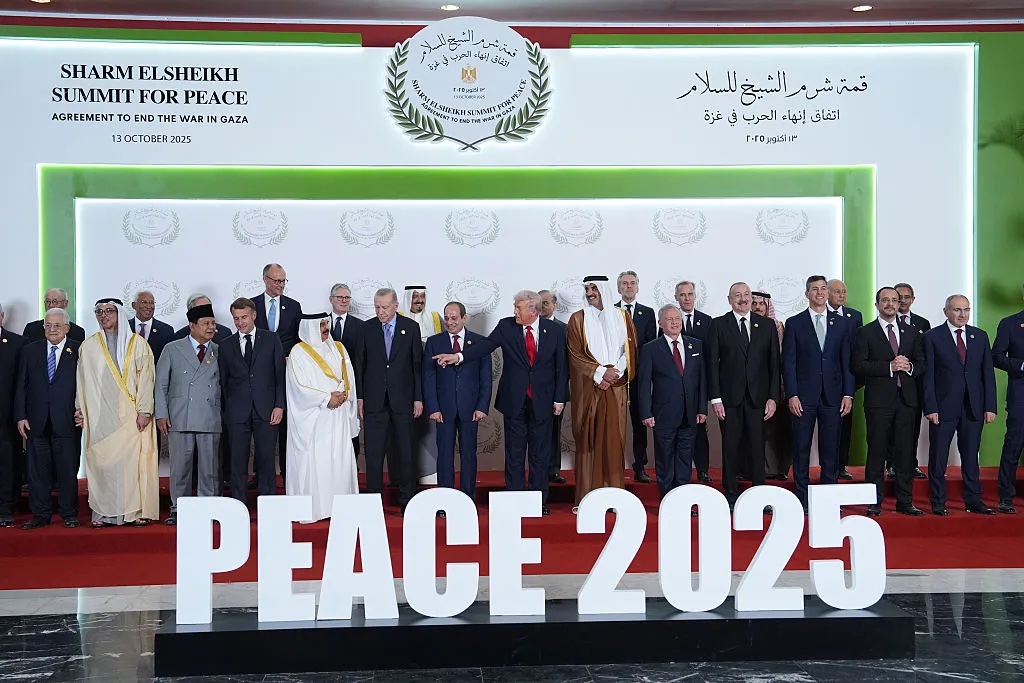
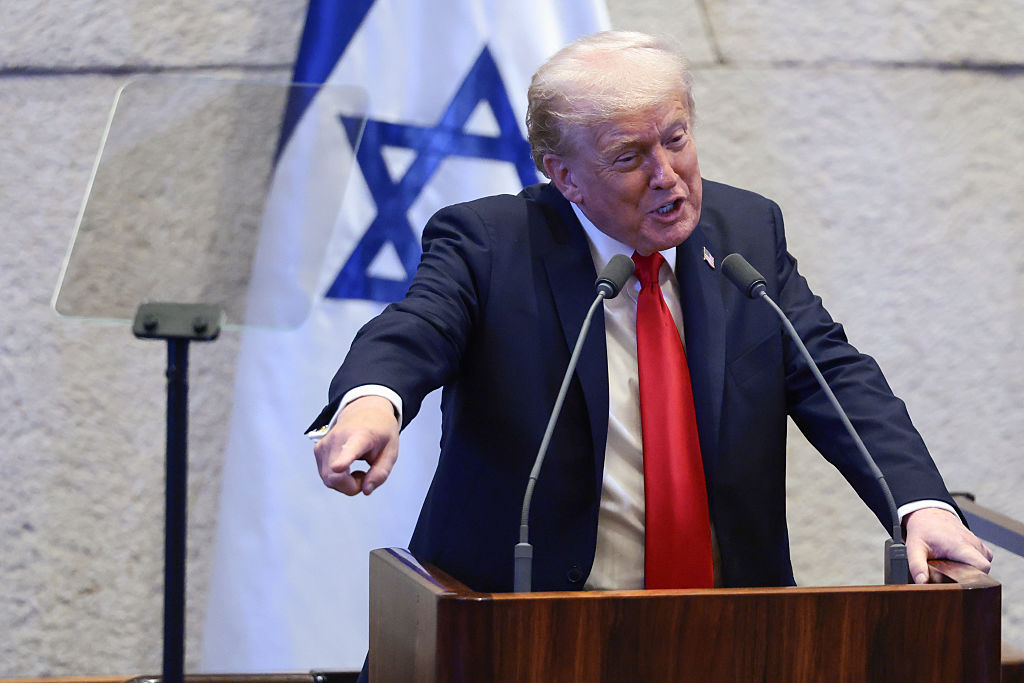
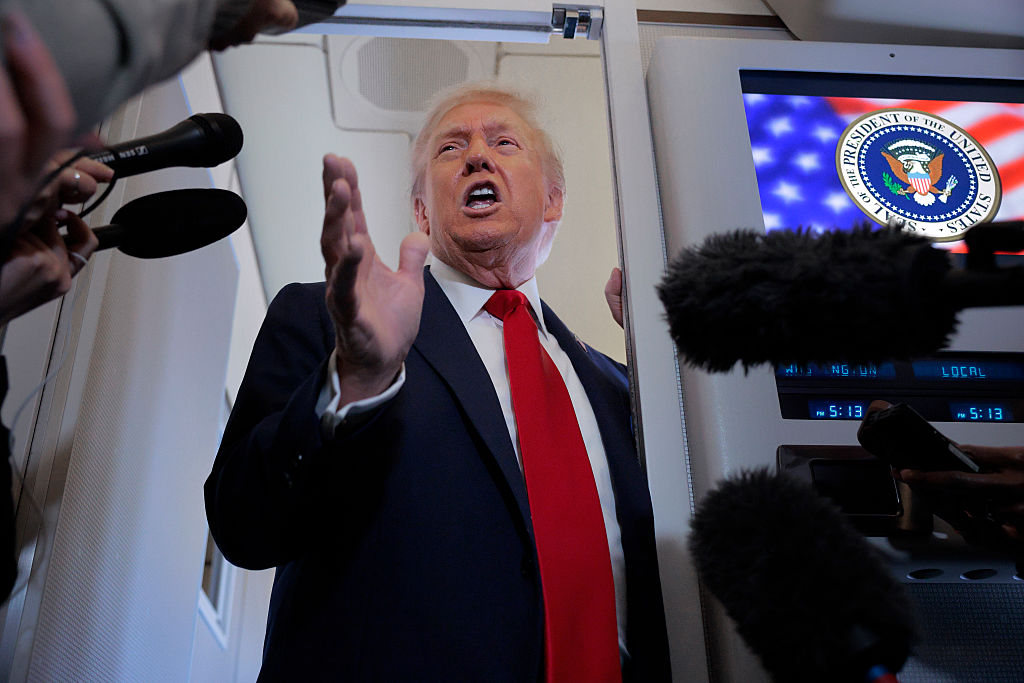

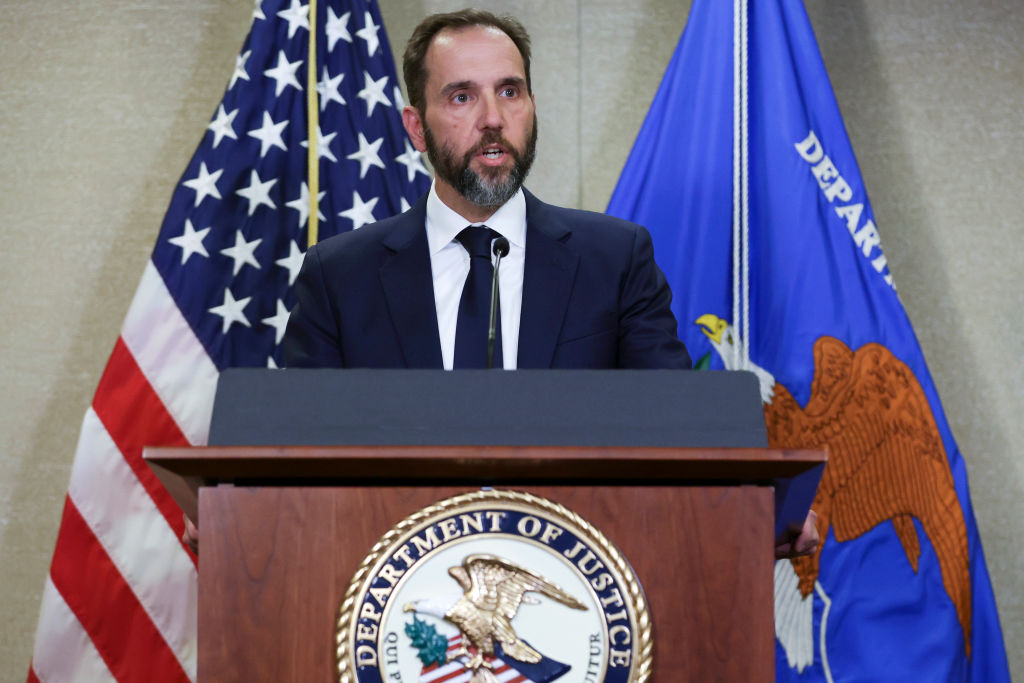







Leave a Reply